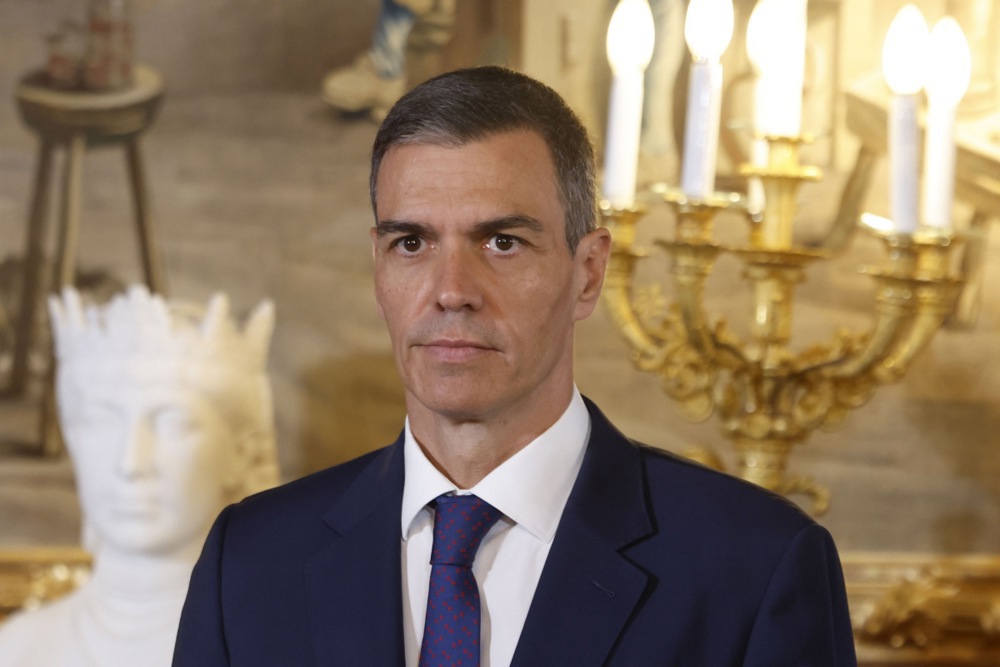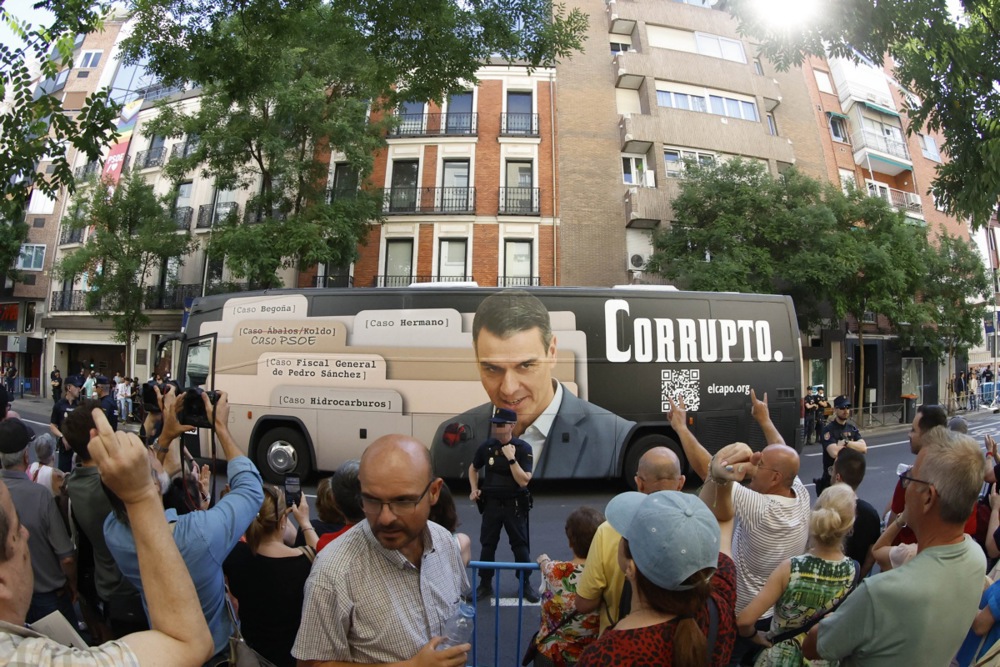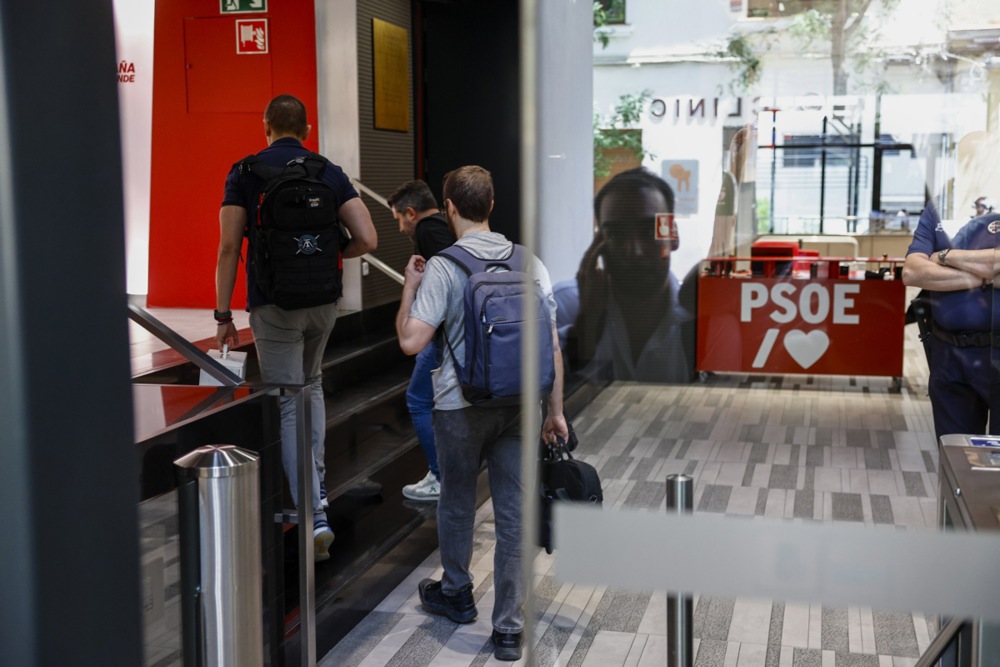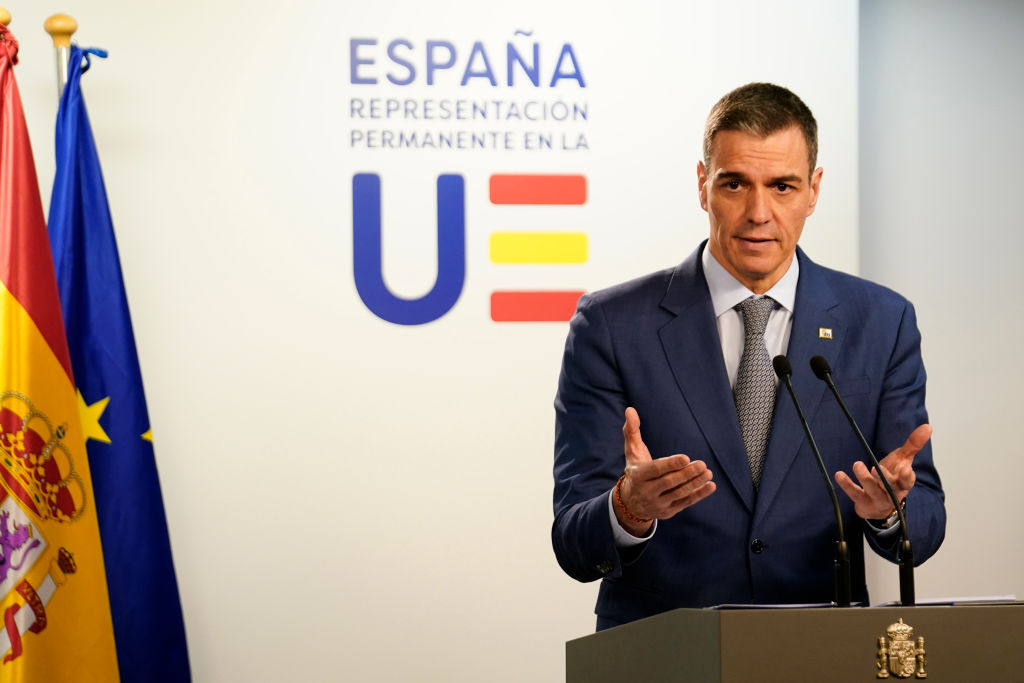Spanish Prime Minister Pedro Sánchez told the parliament during a heated extraordinary plenary session he was not planning to resign over the corruption scandals haunting his government.
Opposition parties claimed he was tainted and should go but the PM refused to do so.
He said he considered quitting but that he was convinced to stay because he had done nothing wrong and had a job to finish.
“I’m not going to throw in the towel. I’m going to keep going,” he told the plenary on July 9.
“Because I am a clean politician, because I aim to regain the trust of the majority of this chamber, and because this political project goes far beyond my person and is still not complete.”
No voy a tirar la toalla.
Voy a continuar.
Porque yo soy un político limpio, porque aspiro a recuperar la confianza de la mayoría de esta cámara y porque este proyecto político va mucho más allá de mi persona y aún no está culminado. pic.twitter.com/7q7LALnvpz
— Pedro Sánchez (@sanchezcastejon) July 9, 2025
For weeks now, the Spanish Socialist Workers’ Party (PSOE) led-minority government has been under pressure from mounting scandals, including allegations against former top PSOE figures including Santos Cerdán and José Luis Ábalos, accused, among other things, of allegedly receiving kickbacks for public works contracts.
Sánchez went on the offensive and took swings at the opposition, pointing at alleged corruption scandals relating to the People’s Party, such as the so-called Gürtel case.
On 24 May 2018, Spain’s highest criminal court found dozens of people, as well as the then-ruling People’s Party (PP), guilty of fraud, money laundering and illegal kickbacks in the case.
Sánchez said he wanted to “eradicate corruption”, while his opponents, he alleged, wanted “to instrumentalise” it.
He also announced a series of measures to fight corruption, designed to address the scandals allegedly involving his PSOE and to restore public trust in his administration.
The 15-point reform agenda included the establishment of an autonomous public integrity agency tasked with preventing, monitoring and prosecuting corruption.
Sánchez criticised existing similar structures for having “generated inefficiencies and lack of co-ordination”.
Another element of the reforms was the introduction of artificial intelligence to enhance data analysis and detect “vulnerabilities” in public procurement.
That was meant to address issues such as those found in alleged corruption relating to the so-called Koldo-case.
That was an ongoing corruption prosecution conducted by the Spanish Supreme Court that began on 28 February 2024.
Santos Cerdán, a former senior official of the Spanish Socialist Party and close assistant of Prime Minister Pedro Sánchez, has been remanded in custody by Spain’s Supreme Court. https://t.co/Hg0X6WzL6C
— Brussels Signal (@brusselssignal) July 1, 2025
To enhance oversight against potential wrongdoing, senior officials would be subject to ‘random and annual wealth checks’ throughout their tenure, Sánchez said.
Furthermore, any political party or foundation receiving more than €50,000 in public funds would be required by law to undergo external audits.
Whistleblowers would receive stronger support by guaranteeing confidentiality and legal protections, while internal reporting channels for companies and public administrations would become mandated.
A draft Anticorruption and Whistleblower Protection Law, though, has been stalled in parliament since 2014, so the new proposal was likely to face an uphill battle, experts said.
Sánchez’s plan also included penalties for political parties engaged in corrupt practices, hoping to strengthen accountability within the political system.
Courts would see the establishment of dedicated sections to handle corruption cases in an attempt to streamline prosecutions and improve judicial efficiency.
There would also be stricter penalties introduced for crimes against public administration to deter corrupt practices.
Sánchez described the reforms as “the biggest boost” to anti-corruption efforts in Spain in recent decades. It was developed with the Organisation for Economic Co-operation and Development (OECD) and its specialised anti-corruption and government integrity division, to align with international best practices.
Not everyone was impressed by the plans.
A leading judicial association shot them down, saying: “It is not enough to announce new agencies or technological tools” if effective independence of the Judiciary and the Public Prosecutor’s Office was not guaranteed.
That was in reference to previous judicial reform plans from the left-wing government that were seen as attempts at power grabbing.
The major corruption scandal rocking the progressive Spanish Government, the Koldo Case, has taken a lewd turn, with prostitutes and a porn actress joining the fray. https://t.co/qek0RWipyW
— Brussels Signal (@brusselssignal) June 19, 2025
Opposition PP leader Alberto Núñez Feijóo dismissed the anti-corruption plans as inadequate.
He accused the PSOE of systemic alleged corruption, likening the party to “a criminal organisation” and calling for early elections.
Feijóo said Sánchez was “destroyed” as a leader and his speech in parliament was delivered as “a fraud who did not come to clean anything but to dirty everything”.
“The one who chose the number two who is in prison is you, and the one who chose the other number two for the ministry with the highest budget is you, and the one who accepted the Koldo-government is you,” the opposition leader claimed.
“The husband is you, the brother of the brother is you [Sánchez’s wife and brother were also under suspicion in other alleged corruption scandals. They deny wrongdoing].
Feijóo also asked the other parties still supporting the PSOE what it would take to say enough was enough.
He told Sánchez: “The main measure you took is called Leire Díez,” referring to the alleged “plumber” of the PSOE, who was accused of being out to hinder the alleged corruption investigations by trying to discredit officers (and who also denies the accusations).
Feijóo demanded that the PM “confess what he knows, help return the loot and call elections”.
He went further, alleging Sánchez was a “beneficiary” of the prostitution business.
“Listen, but who have you been living with? What brothels have you lived off? A beneficiary of the abominable business of prostitution,” he proclaimed.
PODCAST: "Corruption is everywhere!"@ThatAlexWoman and @JustinStares are joined by Spanish MEP @HermannTertsch to talk about the prostitution scandal that has hit Spain’s ruling coalition. https://t.co/e5kN9IuuI8
— Brussels Signal (@brusselssignal) June 27, 2025
Santiago Abascal, leader of the Vox Party, said measures to tackle corruption “already exist” under the Penal Code, from which the government “has eliminated the crime of sedition and reduced the crimes of embezzlement”.
He added that the Guardia Civil existed, “which they [PSOE] have tried to caricature, which they have undermined” and there were “independent judges, whom they want to control”.
“It’s outrageous that you come here to say that you are going to present a plan to fight corruption,” Abascal said.
“The only additional plan that is worth anything is your resignation, your submission to judicial authority and your confession. There is no other plan to fight corruption.”
Abascal alleged Sánchez’s rise to power within the PSOE was corrupt from the beginning, referring to the party’s internal elections. Audio tapes have emerged apparently of Cerdán ordering Koldo García to add two more votes to a ballot box.
He said Sánchez did not want to hold elections because he could “no longer send Cerdán to mess with the ballot boxes”, which, he said, was why Sánchez continued with his “circus act”.
The leader of Vox then also aimed his guns at Feijóo, calling the centre-right PP “almost the same” as the PSOE.
Sánchez also faced heat from his political partners. Two Catalan pro-independence parties working with the PSOE indicated their support had a limit and that if things got worse, they would demand an early election.
For now, though, the Prime Minister still had their support, they said.
Authorities in Spain have searched the ruling Socialist Workers’ Party (PSOE) HQ in Madrid to retrieve the emails of the former secretary of the party Santos Cerdán following corruption allegations. https://t.co/c8jg1cOZvT
— Brussels Signal (@brusselssignal) June 23, 2025





